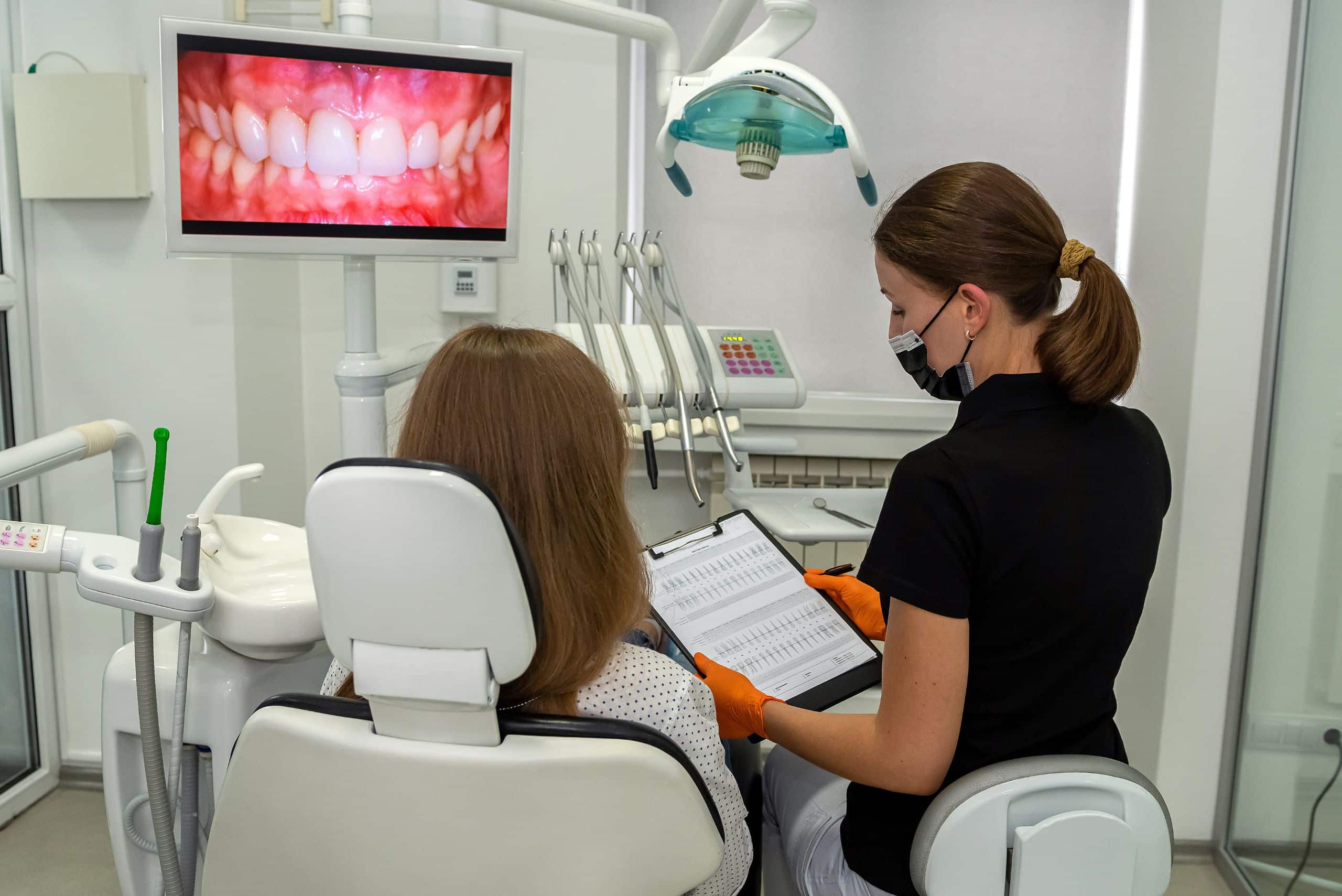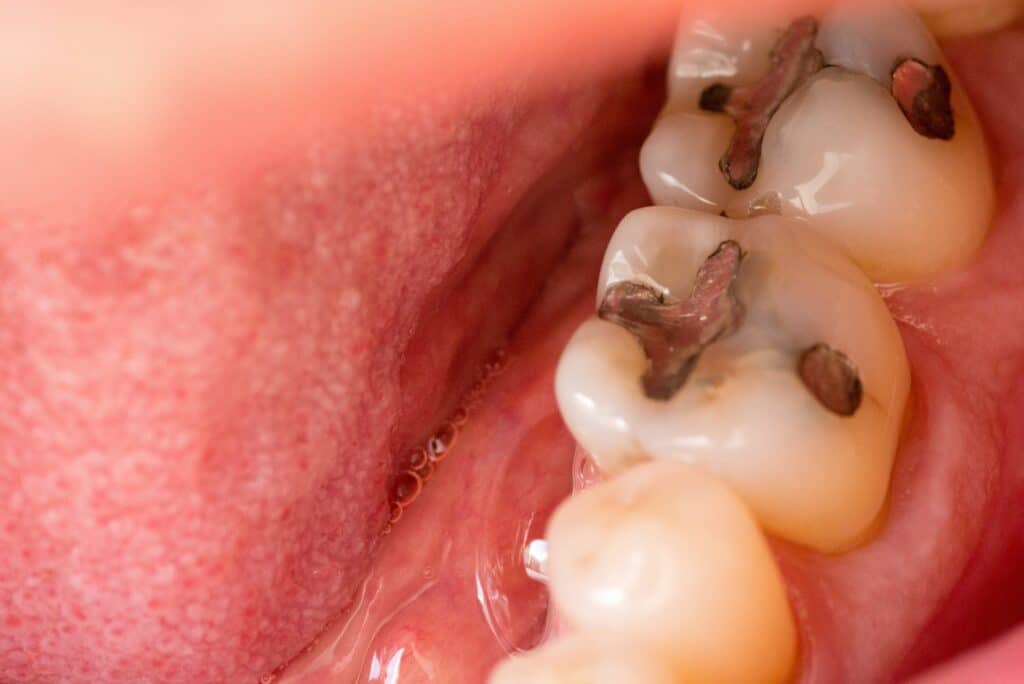A dental appointment is a routine check-up that is essential for maintaining good oral health. If you’re wondering how long a dental appointment takes, the answer is that it depends on the type of appointment you have scheduled. A basic dental exam typically takes under an hour and could be as little as 30 minutes, while a more complex procedure like a root canal or filling may take longer.
During a dental appointment, your dentist will examine your teeth, gums, and mouth to check for any signs of decay, gum disease, or other oral health issues. They may also take X-rays to get a better look at your teeth and jaw. Depending on the results of the exam, your dentist may recommend additional treatments or procedures, such as a cleaning or filling.
It’s recommended that you visit the dentist at least twice a year for routine check-ups and cleanings. Regular check-ups will help keep your teeth clean, last longer, and prevent painful problems from developing. If you’re due for a dental appointment, don’t hesitate to schedule one today to ensure that your oral health is in top condition.
Understanding Dentist Appointments

Dental appointments are important to maintain good oral hygiene and prevent dental problems. A typical dentist appointment lasts between 45 minutes to an hour, depending on the services provided. During this time, the dentist will examine your teeth, gums, and mouth to check for any signs of decay, infection, or other issues.
New patients may be required to fill out paperwork and provide their medical history before the appointment. This information will help the dentist understand your overall health and any conditions that may affect your dental health.
During the appointment, the dentist will use various tools to examine your teeth and gums, including a dental mirror, probe, and x-rays. They may also perform a cleaning to remove any plaque or tartar buildup.
Patients should be prepared to answer questions about their oral hygiene routine and any concerns they may have about their teeth or gums. The dentist may recommend additional treatments or procedures based on their examination and the patient’s needs.
It is important to schedule regular dental appointments to maintain good oral health. Dentist appointments are typically recommended every six months, but may vary depending on the patient’s individual needs.
In summary, dental appointments are an essential part of maintaining good oral health. They typically last between 45 minutes to an hour and involve a thorough examination of the teeth, gums, and mouth. Patients should be prepared to provide their medical history and answer questions about their oral hygiene routine. Regular dental appointments are recommended to prevent dental problems and maintain good oral hygiene.
Duration of Different Dental Procedures

Dental appointments can vary in length depending on the procedure being performed. Here is a breakdown of the average duration of some common dental procedures:
-
Cleaning: A dental cleaning typically takes between 30 minutes to one hour, depending on the amount of buildup on your teeth. During the cleaning, your dentist or hygienist will remove any plaque, tartar, and stains from your teeth. They may also polish your teeth to give them a smooth surface.
-
Exam: A routine dental exam usually takes about 30 minutes to an hour. During the exam, your dentist will check for any signs of tooth decay, gum disease, or other oral health issues. They may also take X-rays to get a closer look at your teeth and jawbone.
-
X-rays: X-rays are a common part of dental exams and can help your dentist identify any issues that may not be visible to the naked eye. The time it takes to complete X-rays varies depending on the number of images needed, but it typically takes around 20 minutes.
-
Filling: If you have a cavity, your dentist may need to fill it to prevent further decay. The time it takes to complete a filling depends on the size and location of the cavity, but it typically takes around 30 minutes to an hour.
-
Scaling and Root Planing: If you have gum disease, your dentist may recommend scaling and root planing to remove plaque and tartar from below the gum line. This procedure can take anywhere from one to four hours, depending on the severity of your condition.
-
Root Canal: If you have an infected or damaged tooth, your dentist may recommend a root canal to remove the infected pulp and save the tooth. The time it takes to complete a root canal varies depending on the location and complexity of the tooth, but it typically takes around one to two hours.
-
Extractions: If you have a tooth that cannot be saved, your dentist may recommend an extraction. The time it takes to complete an extraction depends on the location and complexity of the tooth, but it typically takes around 30 minutes to an hour.
-
Crowns, Veneers, and Implants: Dental work such as crowns, veneers, and implants typically requires multiple appointments and can take several hours to complete. During these procedures, your dentist will prepare the tooth, take impressions, and create a custom restoration to fit your mouth.
In conclusion, the duration of a dental appointment can vary depending on the procedure being performed. It is best to discuss the estimated time with your dentist beforehand to plan accordingly.
Factors Influencing Appointment Length
The length of a dental appointment can vary depending on several factors. In this section, we will discuss some of the factors that can influence the duration of a dental appointment.
Type of Procedure
The type of procedure being performed is one of the most significant factors that can influence the length of a dental appointment. Simple procedures such as routine cleanings and checkups can take as little as 30 minutes to complete. However, more complex procedures such as root canals, extractions, and dental implants can take several hours to complete.
Patient Health and Oral Health

The health of the patient and their oral health can also influence the length of a dental appointment. Patients who are in good health and have excellent oral hygiene may require less time for their appointment. On the other hand, patients with complicated medical histories or poor oral health may require more time for their appointment.
Size of the Practice
The size of the dental practice can also influence the length of a dental appointment. Smaller practices may have fewer staff members, which can result in longer wait times and longer appointments. Larger practices may have more staff members, which can result in shorter wait times and shorter appointments.
Complications
Complications can also influence the length of a dental appointment. For example, if a patient has a tooth that is difficult to extract, the procedure may take longer than expected. Similarly, if a patient has a severe infection, the dentist may need to spend more time treating the infection before performing the procedure.
Time of Day
The time of day can also influence the length of a dental appointment. For example, appointments scheduled early in the morning may be shorter than appointments scheduled later in the day. This is because dentists may have more time to spend with patients earlier in the day before their schedule fills up.
In conclusion, several factors can influence the length of a dental appointment. Patients should discuss their concerns with their dentist to get a better idea of how long their appointment may take.
Pre-Appointment Procedures
Before your dental appointment, there are a few things you can do to ensure a smooth and efficient visit.
Check-In and Paperwork
When you arrive at the dental office, you will need to check in with the front desk. This involves providing your name and appointment time, as well as any necessary insurance information. You may also need to fill out paperwork, such as a health history form or patient information sheet. It is important to arrive early to allow enough time for this process.
Waiting Room

After checking in, you will likely be asked to wait in the waiting room until the dental staff is ready to see you. The waiting room is typically equipped with comfortable seating, magazines, and sometimes a television. You may also be offered water or other beverages while you wait.
Waiting Time
The amount of time you spend waiting will vary depending on the dental office’s schedule and the type of appointment you have. Routine check-ups and cleanings typically take less time than more complex procedures such as fillings or root canals. It is important to be patient and understanding if there are any delays or unexpected changes to the schedule.
Follow-Up Care
After your dental appointment, the staff will provide instructions for any necessary follow-up care. This may include scheduling a future appointment, taking medication, or following specific oral hygiene instructions. It is important to follow these instructions carefully to ensure the best possible outcome for your dental health.
In summary, arriving early, being patient, and following instructions are key to a successful dental appointment. By taking these steps, you can ensure that your visit is efficient and effective.
Insurance and Costs
When it comes to dental appointments, it’s important to consider the cost and whether or not you have dental insurance. According to the American Dental Association, cost is the number one reason people won’t go to the dentist.
If you have dental insurance, you may be wondering how much of the cost is covered. The amount of coverage will depend on your specific plan. Some plans may cover the entire cost of a routine cleaning and exam, while others may only cover a portion. It’s important to check with your insurance provider to see what is covered under your plan.
For those without dental insurance, the cost of a dentist appointment can vary depending on the services needed. According to GoodRx, a basic teeth cleaning can cost anywhere from $75 to $200, while a root canal on a molar can cost $800 to $1,500 per tooth. Dentures can also be expensive, with a full set costing anywhere from $2,000 to $20,000.
It’s important to note that some dental offices may offer recommendations for in-network providers, which can help reduce the cost of your appointment. Additionally, some offices may offer payment plans or financing options to make dental care more affordable.
Overall, the cost of a dentist appointment can vary depending on a variety of factors. It’s important to check with your insurance provider and dental office to get a better idea of the price and any available discounts or payment options.
Importance of Regular Dental Check-Ups

Regular dental check-ups are essential for maintaining good oral hygiene. It is recommended that you visit your dentist at least twice a year for a routine check-up and teeth cleaning. These check-ups are important for several reasons:
-
Prevention of dental problems: Regular check-ups can help identify dental problems early, before they become more severe and require more extensive treatment. This includes identifying cavities, gum disease, and other oral health issues that can lead to tooth loss and other problems.
-
Professional teeth cleaning: During a dental check-up, your hygienist will clean your teeth, removing any plaque and tartar buildup that can lead to tooth decay and gum disease. This cleaning helps keep your teeth and gums healthy and prevents future problems.
-
Oral cancer screening: Oral cancer is a serious and potentially life-threatening condition that can be detected early during a routine dental check-up. Your dentist will check your mouth for any signs of oral cancer, including lumps, bumps, and discoloration.
-
Education on oral hygiene: During your check-up, your dentist or hygienist can provide you with valuable information on how to maintain good oral hygiene. This includes tips on brushing and flossing techniques, as well as advice on which oral care products to use.
Regular dental check-ups are an important part of maintaining good oral health. By visiting your dentist regularly, you can prevent dental problems before they become more severe and maintain a healthy smile for years to come.
Dealing with Dental Issues

Regular dental appointments can help detect and prevent dental issues such as decay, plaque buildup, and cavities. However, sometimes dental issues can still arise despite regular checkups. Here are some common dental issues and how they can be dealt with:
-
Decay: Decay occurs when bacteria in the mouth produce acid that eats away at the tooth’s enamel. If left untreated, decay can lead to cavities. Treatment for decay usually involves removing the decayed portion of the tooth and replacing it with a filling.
-
Plaque buildup: Plaque is a sticky film of bacteria that forms on teeth. If not removed, it can harden into tartar, which can lead to gum disease. Regular brushing and flossing can help prevent plaque buildup, but professional cleanings may be necessary to remove tartar.
-
Cavities: Cavities are holes in the teeth caused by decay. Treatment for cavities usually involves removing the decayed portion of the tooth and filling the hole with a filling.
-
Extraction: Sometimes a tooth may need to be extracted due to severe decay, infection, or crowding. Extraction is a common dental procedure that involves removing the tooth from the socket.
-
Dentures: Dentures are removable prosthetic devices used to replace missing teeth. They can be made of acrylic resin or porcelain. Dentures may be necessary if multiple teeth are missing or if the remaining teeth are in poor condition.
-
Dental treatment: Dental treatment can encompass a wide range of procedures, from fillings and root canals to crowns and bridges. The type of treatment needed will depend on the specific dental issue.
-
Breaks: Teeth can break due to trauma or decay. Treatment for a broken tooth will depend on the severity of the break. Minor breaks may be repaired with a filling, while more severe breaks may require a crown or extraction.
-
Color: Teeth can become discolored due to a variety of factors, including age, genetics, and lifestyle habits such as smoking or drinking coffee. Teeth whitening treatments can help restore the natural color of the teeth.
-
Cemented: Cemented restorations, such as crowns and bridges, are used to restore damaged or missing teeth. These restorations are cemented onto the existing teeth or implants.
-
Dental implant: A dental implant is an artificial tooth root that is placed into the jawbone. It can be used to support a single tooth or a bridge. Dental implants are a popular option for replacing missing teeth because they look and function like natural teeth.
In summary, dental issues can arise despite regular checkups. However, with proper treatment and care, most dental issues can be resolved. If you are experiencing any dental issues, it is important to consult with a dental professional to determine the best course of action.
Post-Appointment Care

After your dentist appointment, it’s important to take care of your teeth and gums to maintain good oral health. Here are some tips to follow:
-
Brush and floss regularly: Brush twice a day with fluoride toothpaste and floss at least once a day to remove any food particles or plaque that may have accumulated on your teeth and gums.
-
Avoid hard foods: After your appointment, it’s best to avoid hard or crunchy foods that can damage your teeth or gums.
-
Use mouthwash: Rinsing your mouth with mouthwash can help kill bacteria and freshen your breath.
-
Follow any instructions from your dentist: If your dentist prescribed any medication or recommended a specific oral care routine, be sure to follow their instructions.
-
Protect your teeth: If you play sports, wear a mouthguard to protect your teeth from injury.
-
Schedule your next appointment: It’s important to schedule your next appointment for a dental checkup and cleaning every six months.
If you experience any pain or discomfort after your appointment, contact your dentist. They may recommend an over-the-counter pain reliever or prescribe antibiotics if necessary.
Remember, taking care of your teeth and gums is an important part of maintaining good oral health. By following these tips and visiting your dentist regularly, you can keep your smile healthy and bright.
Conclusion
In conclusion, the length of a dentist appointment can vary depending on the type of service being provided and the dental office’s policies. According to the American Dental Association, a routine dental visit should take around an hour, including a cleaning and a check-up. However, a first-time or non-routine visit may take longer, up to 90 minutes or more.
Private care may also affect the length of an appointment, as some offices may offer more comprehensive services or take more time to address patient concerns. It is always best to check with your dental office beforehand to get a better idea of what to expect.
While it may seem like a hassle to schedule a dentist appointment, regular dental visits are crucial for maintaining good oral health and preventing dental disease. Good oral hygiene and regular dental exams can also have a positive impact on your overall health.
Overall, it is important to prioritize your dental health and make time for regular dental visits. By doing so, you can ensure that your teeth and gums stay healthy and strong for years to come.


